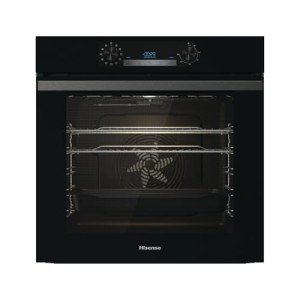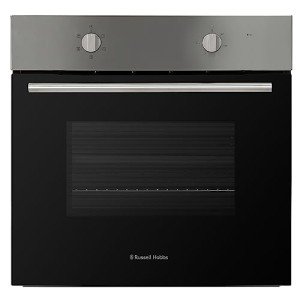10 No-Fuss Methods To Figuring Out The Built In Oven In Your Body.
페이지 정보

본문

The Ultimate Guide to Buying a Built-In Oven
In the realm of contemporary cooking appliances, built in ovens electric-in ovens stand apart for their seamless combination into kitchen cabinets, aesthetic appeal, and advanced cooking technologies. They offer a plethora of features and a structured design, accommodating both culinary lovers and daily cooks. However, picking the ideal built-in oven can be challenging given the wide variety of choices offered in the market. This short article functions as a comprehensive guide, highlighting crucial factors to consider when purchasing a built-in oven, popular features, and answers to regularly asked questions (FAQs).
Why Choose a Built-In Oven?
Built-in ovens provide various advantages, including:

- Space Efficiency: They are developed to fit into existing cabinetry, optimizing kitchen space.
- Visual Appeal: With a variety of designs and finishes, built-in integrated ovens improve the overall appearance of a kitchen.
- Advanced Features: Many come geared up with cutting edge innovation, making cooking easier and more accurate.
- Modification: Built-in ovens can be installed at eye level or below counter height, using flexibility based upon personal preference.
Key Considerations When Buying a Built-In Oven
Here are very important elements to consider before purchasing:
1. Size and Dimensions
Before picking a built-in oven, it is crucial to determine the offered space. Requirement built in oven uk-in ovens generally fall under two primary categories:
| Oven Size | External Dimensions | Internal Capacity |
|---|---|---|
| Single | 24-30 inches broad | 3-5 cubic feet |
| Double | 30-36 inches large | 5-10 cubic feet |
Guarantee that the picked design fits your cabinetry both in width and height.
2. Kind of Oven
Built-in ovens come in different types, including:
- Conventional Ovens: Uses heating components above and below for standard baking and roasting.
- Convection Ovens: Employs a fan to distribute hot air, supplying even cooking.
- Wall Ovens: Installed vertically at eye level for simpler access.
- Steam Ovens: Uses steam to prepare food, protecting nutrients and wetness.
3. Fuel Type
Built-in ovens are available in various fuel types:
- Electric: Often heats up more evenly, ideal for baking.
- Gas: Offers immediate temperature control, fantastic for roasting and broiling.
- Dual Fuel: Combines the best of both worlds with a gas cooktop and electric oven.
4. Functions and Technology
Modern built-in ovens come with a myriad of functions that improve the cooking experience:
- Smart Technology: WiFi-enabled designs allow users to manage the oven remotely by means of an app.
- Self-Cleaning: Reduces the effort needed to preserve a tidy oven.
- Delay Start: Lets you set the oven to begin cooking at a predetermined time.
- Numerous Cooking Modes: Options for baking, broiling, roasting, and more.
5. Brand name and Price
Selecting a reliable brand can ensure quality and reliability. Comparative prices among different brand names can assistant in decision-making. Here's a short overview of popular brand names and their price varieties:
| Brand | Avg. Price Range | Significant Features |
|---|---|---|
| Bosch | ₤ 1,000 - ₤ 3,000 | Sleek style, reputable performance |
| Whirlpool | ₤ 800 - ₤ 2,500 | User-friendly controls |
| KitchenAid | ₤ 1,200 - ₤ 3,500 | Innovative functions, elegant styles |
| GE Appliances | ₤ 900 - ₤ 2,800 | Range of sizes and choices |
Setup Considerations
Setup of a built-in oven is a crucial aspect that ought to not be overlooked. It's highly advised to hire a professional when installing a built-in oven. They can address electrical or gas line problems and ensure that the oven is fitted securely in the kitchen cabinetry.
Maintenance Tips
Maintaining a built-in oven is vital to extend its life-span and performance.
- Tidy Regularly: Wipe down surfaces and prevent letting spills become baked-on.
- Use Appropriate Cookware: This prevents damage to interior surfaces and enhances cooking efficiency.
- Inspect Seals: Inspect the door seals frequently for wear and tear to maintain energy efficiency.
FAQs About Built-In Ovens
1. How do I know which size built-in oven to buy?
Procedure the space you have offered and compare it to the oven dimensions. Requirement sizes normally range from 24 to 30 inches for single ovens.
2. Can I install a built-in oven myself?
While it's possible to install a built-in oven without professional help, employing an experienced service technician is suggested for security, specifically with gas or electrical connections.
3. What is the average life expectancy of a built-in oven?
Normally, built-in ovens last about 10-15 years with correct upkeep.
4. Are built-in ovens energy effective?
Energy performance differs by design. Look for bbs.wuxhqi.com energy scores or eco-friendly features when picking an oven.
5. Do built-in ovens require special kitchen cabinetry?
Yes, they are developed to fit particular cabinetry sizes. Make sure the kitchen cabinetry is built to accommodate the wanted oven's measurements.
A built-in oven is an excellent investment that can significantly improve your cooking experience and kitchen visual. With numerous sizes, types, and advanced features, comprehending your needs and preferences is crucial for making the best option. By considering measurements, fuel type, and brand name track record, you can with confidence select a built-in oven customized to your lifestyle. Ultimately, a well-chosen built-in oven will not only raise your culinary abilities but also work as a sensational centerpiece in your kitchen for several years to come.
- 이전글Five Killer Quora Answers To Built In Microwave Small 25.05.18
- 다음글See What Kitchen Island Cooker Hood Tricks The Celebs Are Making Use Of 25.05.18
댓글목록
등록된 댓글이 없습니다.


